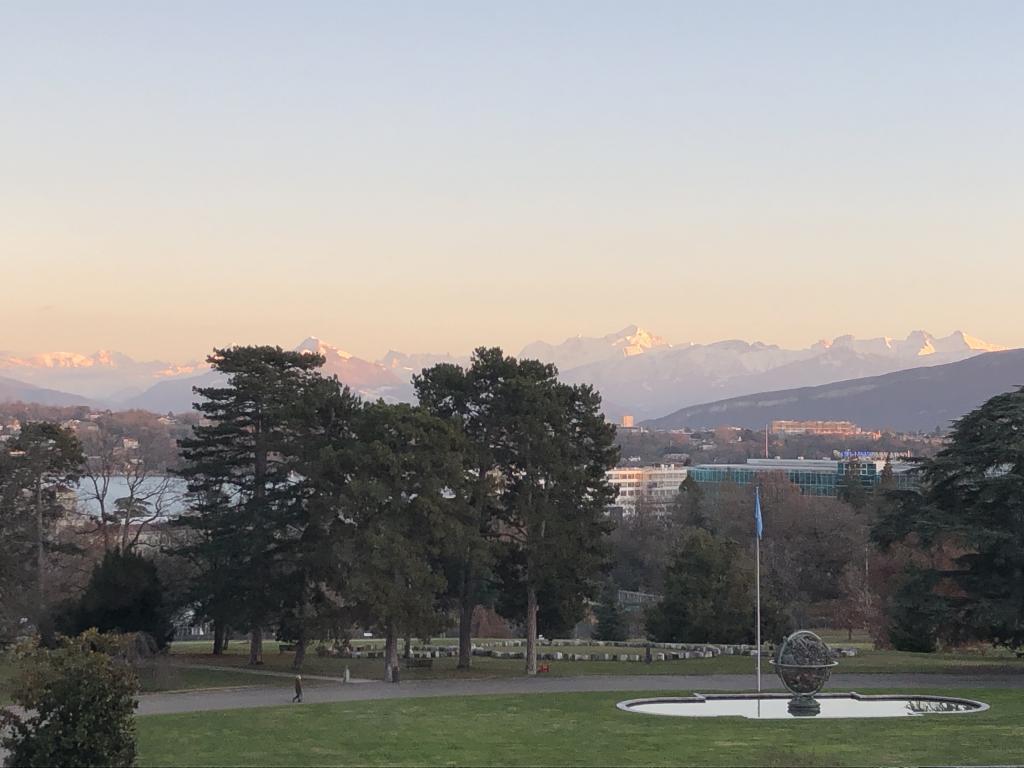This article is part of the series Governance, in Crisis.
By Jerome Bellion-Jourdan
Senior Fellow in Residence, Global Governance Centre
The Graduate Institute
24 April marks the “International Day of Multilateralism and Diplomacy for Peace”. This year, the day takes a special significance: we mark a centenary since the establishment of the League of Nations and 75 years since the establishment of the United Nations (UN). Most importantly, multilateralism is put to a new test as the world is hit by the COVID-19 pandemic.
Humankind is now facing a global crisis. Perhaps the biggest crisis of our generation (…). When choosing between alternatives, we should ask ourselves not only how to overcome the immediate threat, but also what kind of world we will inhabit once the storm passes.
At this juncture, there is an opportunity to rethink the format of international negotiations themselves, to contribute to defining the kind of world we want to inhabit and leave to the next generations. Could we experiment with a truly inclusive negotiation to lay the foundations of the world after COVID-19, bringing to a virtual negotiation table people from all continents and walks of life? Could we bring to negotiate together those willing to turn the global threat into an opportunity to address other global challenges such as climate change, while others may be tempted to go back to “business as usual”?
State-driven international negotiations
“La posición sostenida por el representante de la UE me ha indignado. (…) Como parlamentaria elegida democráticamente por la ciudadanía europea, le pido que a partir de ahora mantenga una posición constructiva y positiva en este proceso. Si no, me veré obligada a decirle: USTED NO NOS REPRESENTA.” These were the words of a member of the European Parliament looking into my eyes as I was seated behind the European Union nameplate in the UN Human Rights Council Intergovernmental Working Group on transnational corporations and other business enterprises with respect to human rights. This was followed by a round of applause from civil society representatives likely outnumbering the number of State representatives in Room XX of the Palais des Nations in Geneva.
This and other instances raise profound questions on the current set up for multilateral negotiations. With a few notable exceptions such as the International Labour Organisation where workers and employers have an equal voice with governments, seats at the global negotiation table are exclusively reserved for States or groups of States – all States have in principle an equal voice, but most negotiations are marked by an asymmetry of power. Well before the world was hit by COVID-19, one could hear, even within the ranks of diplomats and negotiators, questions like: do negotiating States or groups of States genuinely represent the collective interest of their “people”? Isn’t there a need to rethink the format of negotiations bringing a greater diversity of voices to the negotiation table and in the preparation for negotiations?
Admittedly, the multilateral system has considerably opened to non-State actors. Some 1,000 NGOs and international organizations have observer status at the UN. However, there is still fierce opposition, from some States but also from within civil society, towards bringing other actors, such as business organisations and companies, to the negotiation table. Moreover, as the name implies, observer status grants a limited role. It does not necessarily mean a seat at the negotiation table. In most, if not all negotiations, States ultimately negotiate, seal a negotiated agreement or agree to disagree in various deadlocked negotiations.
This comes in contrast with increasingly positive experiences outside the UN where spaces like the World Economic Forum enable business, governments, civil society and academia to interact; or promising initiatives such as the Mega-Sporting Events Platform which led to the establishment of a Centre for Sport and Human Rights by bringing together sport bodies, governments, broadcasters, business companies, trade-unions, NGOs and international organisations.
This is an excerpt. To read the full article, visit The Global.
Interested in contributing to our blog? Here is how


